Consider a fillet section subjected to a tensile force F. Knowing that the fillet section has a uniform thickness of 5 mm and a yielding stress of 250 MPa, determine the force F that initiated the yielding of the fillet section. a.1.25 kN b.2.5 kN c.4 kN F d.2 kN 40 mm 25 mm 40 mm Which of the following is FALSE regarding the equation for deformation, 8=PL/AE? A. The term AE refers to the resistance of the member against axial deformation B.It can be used even for non-prismatic members C.It can only be used to compute for the elastic axial deformation of the member D. The term P refers to the internal axial force at the section considered A rigid bar ABC is loaded and supported as shown in the figure. After the load P is applied, the deformation of bar BD, SBD 0.6mm. What is the displacement at point B? A.0.36 mm B.0.48 mm C.0.75 mm D.1.00 mm 0.3 m 0.3 m Which of the following statements is TRUE for a circular shaft under pure torsion? A. The angle of twist of a point on the shaft's cross section is proportional to its radial distance from its longitudinal axis. B.The shear stress developed is proportional to the length of the member. C.The shearing strain developed is directly proportional to its radial distance from the longitudinal axis. D. The internal torque experienced is proportional to the length of the member.
Consider a fillet section subjected to a tensile force F. Knowing that the fillet section has a uniform thickness of 5 mm and a yielding stress of 250 MPa, determine the force F that initiated the yielding of the fillet section. a.1.25 kN b.2.5 kN c.4 kN F d.2 kN 40 mm 25 mm 40 mm Which of the following is FALSE regarding the equation for deformation, 8=PL/AE? A. The term AE refers to the resistance of the member against axial deformation B.It can be used even for non-prismatic members C.It can only be used to compute for the elastic axial deformation of the member D. The term P refers to the internal axial force at the section considered A rigid bar ABC is loaded and supported as shown in the figure. After the load P is applied, the deformation of bar BD, SBD 0.6mm. What is the displacement at point B? A.0.36 mm B.0.48 mm C.0.75 mm D.1.00 mm 0.3 m 0.3 m Which of the following statements is TRUE for a circular shaft under pure torsion? A. The angle of twist of a point on the shaft's cross section is proportional to its radial distance from its longitudinal axis. B.The shear stress developed is proportional to the length of the member. C.The shearing strain developed is directly proportional to its radial distance from the longitudinal axis. D. The internal torque experienced is proportional to the length of the member.
Principles of Foundation Engineering (MindTap Course List)
9th Edition
ISBN:9781337705028
Author:Braja M. Das, Nagaratnam Sivakugan
Publisher:Braja M. Das, Nagaratnam Sivakugan
Chapter8: Vertical Stress Increase In Soil
Section: Chapter Questions
Problem 8.6P: Two line loads q1 and q2 of infinite lengths are acting on top of an elastic medium, as shown in...
Related questions
Question

Transcribed Image Text:Consider a fillet section subjected to a tensile force F. Knowing that the fillet section has a
uniform thickness of 5 mm and a yielding stress of 250 MPa, determine the force F that
initiated the yielding of the fillet section.
a.1.25 kN
b.2.5 kN
c.4 kN
F
d.2 kN
40 mm
25 mm
40 mm
↓
Which of the following is FALSE regarding the equation for deformation, 8=PL/AE?
A. The term AE refers to the resistance of the member against axial deformation
B.It can be used even for non-prismatic members
C.It can only be used to compute for the elastic axial deformation of the member
D. The term P refers to the internal axial force at the section considered
A rigid bar ABC is loaded and supported as shown in the figure. After the load P is applied,
the deformation of bar BD, SBD 0.6mm. What is the displacement at point B?
A.0.36 mm
B.0.48 mm
P
C.0.75 mm
D.1.00 mm
C
0.3 m
0.3 m
Which of the following statements is TRUE for a circular shaft under pure torsion?
A. The angle of twist of a point on the shaft's cross section is proportional to its radial
distance from its longitudinal axis.
B.The shear stress developed is proportional to the length of the member.
C.The shearing strain developed is directly proportional to its radial distance from the
longitudinal axis.
D. The internal torque experienced is proportional to the length of the member.
Expert Solution
This question has been solved!
Explore an expertly crafted, step-by-step solution for a thorough understanding of key concepts.
Step by step
Solved in 2 steps with 2 images

Knowledge Booster
Learn more about
Need a deep-dive on the concept behind this application? Look no further. Learn more about this topic, civil-engineering and related others by exploring similar questions and additional content below.Recommended textbooks for you

Principles of Foundation Engineering (MindTap Cou…
Civil Engineering
ISBN:
9781337705028
Author:
Braja M. Das, Nagaratnam Sivakugan
Publisher:
Cengage Learning
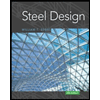
Steel Design (Activate Learning with these NEW ti…
Civil Engineering
ISBN:
9781337094740
Author:
Segui, William T.
Publisher:
Cengage Learning
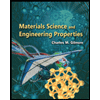
Materials Science And Engineering Properties
Civil Engineering
ISBN:
9781111988609
Author:
Charles Gilmore
Publisher:
Cengage Learning

Principles of Foundation Engineering (MindTap Cou…
Civil Engineering
ISBN:
9781337705028
Author:
Braja M. Das, Nagaratnam Sivakugan
Publisher:
Cengage Learning

Steel Design (Activate Learning with these NEW ti…
Civil Engineering
ISBN:
9781337094740
Author:
Segui, William T.
Publisher:
Cengage Learning

Materials Science And Engineering Properties
Civil Engineering
ISBN:
9781111988609
Author:
Charles Gilmore
Publisher:
Cengage Learning
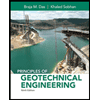
Principles of Geotechnical Engineering (MindTap C…
Civil Engineering
ISBN:
9781305970939
Author:
Braja M. Das, Khaled Sobhan
Publisher:
Cengage Learning
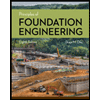
Principles of Foundation Engineering (MindTap Cou…
Civil Engineering
ISBN:
9781305081550
Author:
Braja M. Das
Publisher:
Cengage Learning
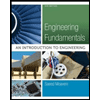
Engineering Fundamentals: An Introduction to Engi…
Civil Engineering
ISBN:
9781305084766
Author:
Saeed Moaveni
Publisher:
Cengage Learning